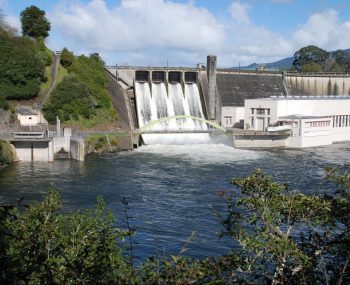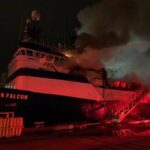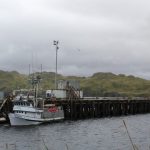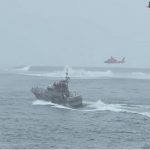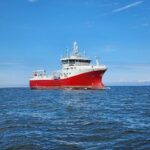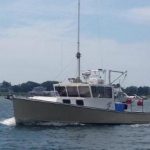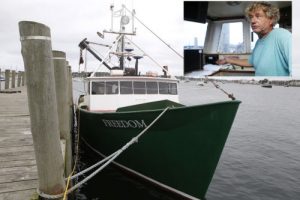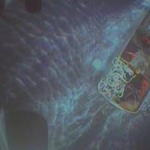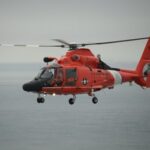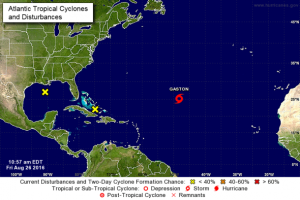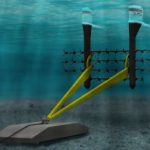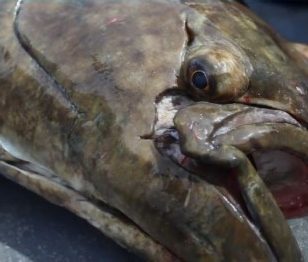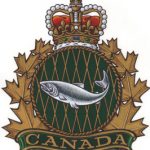Tag Archives: New Zealand
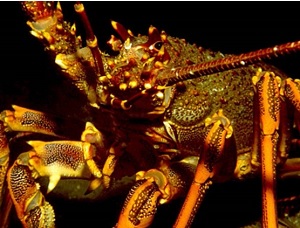
New Zealand rock lobster industry back in action with exports to China
The New Zealand lobster industry was among the first and hardest hit by Covid-19, with the export of live lobsters from New Zealand stopping in late January when China closed its restaurants and freight to the country was restricted. However, Te Anau-based Fiordland Lobster Company, which exports about 40 percent of New Zealand lobster to China, has started up again this week and its product will begin arriving in Shanghai this weekend. Lobster Exporters of New Zealand chairman Andrew Harvey confirmed lobster exports into China had resumed after “stopping dead” in late January. >click to read< 10:21
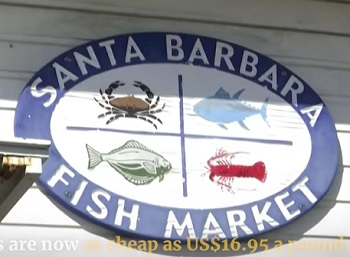
Coronavirus: Global lockdown to hit China’s supplies of steak, lobster, wines
Just over a month ago, supply chains in China were thrown into chaos as trucks and planes delivering goods to the world came to a standstill. Now, China’s economy is moving back towards capacity, while the supply shock from the coronavirus pandemic is beginning to affect many Western countries, as they look to contain the virus’ spread. But this second round of supply shock enveloping countries around the world may mean China’s growing middle classes find themselves strapped for premium overseas food such as meat and dairy products,,, Video, >click to read< 11:26
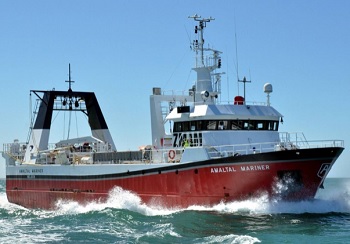
Amaltal skipper to plead guilty for fishing in marine reserve
On 4 March 2020, in the Nelson District Court, the skipper of the Amaltal Mariner intimated a guilty plea to one charge under the Marine Reserves Act 1971 for an incident that occurred in March 2019. The vessel started a tow outside the Hikurangi Marine Reserve, off the Kaikōura coast and then accidentally crossed the line into the reserve. During the brief time the net was in the reserve $213 worth of fish was caught. No benthic organisms were recorded as being caught in the tow. more, >click to read< 11:11
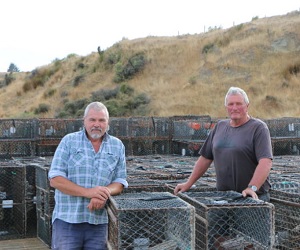
Coronavirus: Crayfish ‘losses will compound financial hardship’ for fishers
Moves by the government to support the crayfish sector in the wake of the Covid-19 outbreak may not be enough to stop some businesses going under,,, New Zealand fishers had already paid to catch those 400 tonnes at $50 a kilo, because the right to catch fish costs money, under a system known as ACE, or Annual Catch Entitlement. This is part of the quota management system. To alleviate those losses, after consultation with the industry the government yesterday announced it would allow fishing companies to carry forward 10 percent of the unused catch entitlements to next year.,, >click to read< 11:00
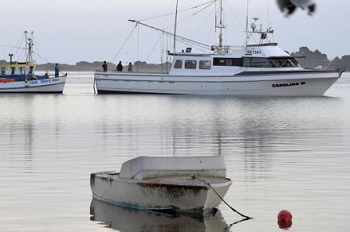
Fishing boat under repair after hitting rocks in Otago Harbour
A fishing vessel struck rocks in Otago Harbour and had to be grounded on a sandbank to stop it sinking. Otago Regional Council harbourmaster Steve Rushbrook said Carolina M hit the ground near Wellers Rock about 3am on Saturday and started taking on water. “With the help of a local fishing vessel, the Mary Ann, the Carolina M made it to a point of safety — a known shallow sandbank in the area. >click to read< 16:23
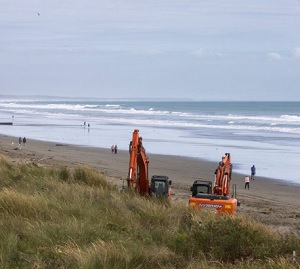
Boat removed after running aground on Christchurch beach
A 13-metre long fishing boat that ran aground on a Christchurch beach to protect an “inexperienced crew’s safety” has been removed. Contractors had been working intermittently during low tide since Sunday morning to deconstruct and remove the boat, deemed “unsalvageable” after grinding to a halt on Waimairi Beach. The vessel, Debbie Jane, was on its way from Banks Peninsula to Motueka, near Nelson, when it ran aground well off course on Saturday night. >click to read< 14:05
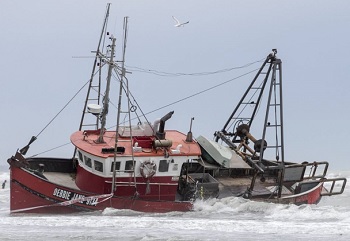
Skipper who ground boat on Christchurch beach blames ‘shocking’ weather. Work under way to remove,,,
David “Crazy Horse” Atkinson was the taking the 13-metre Debbie Jane from Banks Peninsula to Motueka, near Nelson, when it ground to a halt well off course at Waimairi Beach on Saturday night. The conditions were “shocking”, he said. He and his two crew members were rescued by a swimmer from a helicopter, and taken to Christchurch Hospital where they were treated for hypothermia. >click to read< 11:07
Work under way to remove boat from Christchurch beach – >click to read< 11:13
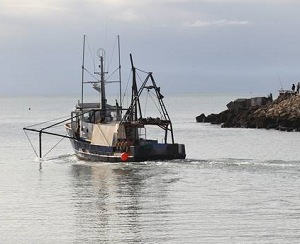
Comment: New Zealand’s fishing industry under pressure
New Zealand’s fishing industry punches well above its weight internationally – but we can do better, writes National’s spokesman for Fisheries Ian McKelvie.,, Currently our fishing industry is under pressure as their fishing methods, environmental record and the sustainability of their catch are coming under criticism from a sector of our community, and factions within Government who don’t always use fact-based material to back up their criticism. The Hector’s and Māui Dolphins Threat Management Review is a major concern for the industry at the moment. >click to read< 19:04
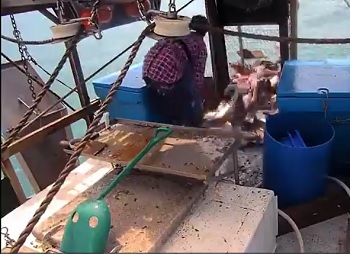
Hawke’s Bay commercial fisherman Karl Warr wants the public to see the job for what it is.
He’s installed a camera on board his boat to live stream what he’s doing to a website. “Personally it’s about, you know, showing the provenance of the product to our customers so rather than me tell them how it is, it’s right there on film to have a look yourself.” He’s broadcasting his methods to the world. Even his bycatch, the species he doesn’t intend to take, will be seen. It’s a risk he’s willing to take. Video, >click to read< 14:32
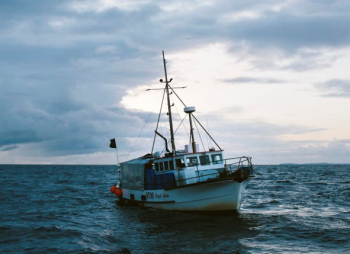
The New Zealand fishing industry is fighting back against claims its newspaper advertising campaign is “spin”
It is true that the seafood industry is in fighting mode, as evidenced by a series of full-page ads we are running in the Dominion Post and the New Zealand Herald. However, there is a very good reason for that. Hundreds of small, family-owned fishing businesses are at stake if a review of the Hector’s and Māui dolphin Threat Management Plan sees tougher rules introduced.,, And for what? there has been no death of a Māui dolphin attributed to commercial fishing since 2002.,,, the biggest threat to the Māui is not fishing. It’s toxoplasmosis, a parasitic disease found in cat faeces,,, >click to read< 09:36
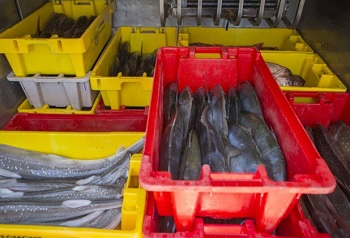
New Zealand: Lack of interest in commercial fishing jobs threatens our fresh fish and chips
One of New Zealand’s few licensed fish processors and exporters says it is in dire need of more fish and fishermen. Egmont Seafoods, based in New Plymouth, say if things don’t change there won’t be fresh seafood readily available for New Zealanders or for export overseas. It’s the start of the week and although there are fish on the shelves for customers to buy, Egmont Seafoods has no fish to process and won’t until Wednesday.,,, “There’s an opportunity to take advantage of the fish stock we’ve got on our back doorstep but it’s difficult to do that when you don’t have the people who want to get involved.” >click to read<12:55
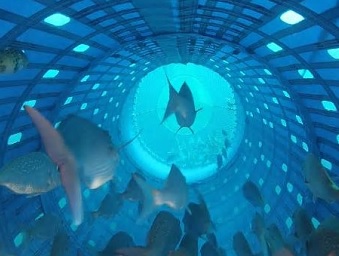
New Zealand: Regulatory approval of new innovative trawl technology
Fisheries New Zealand has approved the use of the Precision Seafood Harvesting (PSH) Modular Harvest System (MHS) in North Island inshore fisheries for snapper, tarakihi, trevally, red gurnard, and John dory with specific conditions. Stuart Anderson, Director Fisheries Management at Fisheries New Zealand, says innovation in the fishing industry is important to deliver sustainability benefits and is a key step in the journey to shift to higher value products. “In granting this approval Fisheries New Zealand is satisfied that this system performs at least as well as traditional mesh trawl nets, while ensuring sustainability benefits,” says Mr Anderson. >click to read<20:30
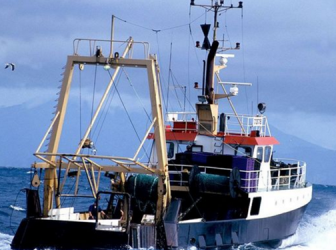
Trawler captain dumped fish to save ship
A judge has stepped in to settle allegations of misreporting catch by a fishing company, after a trawler captain had to dump 30,000 kilograms of southern blue whiting to save his ship.Independent Fisheries Ltd pleaded guilty to two charges in the Christchurch District Court but the judge immediately discharged the company without conviction and declined to make any forfeiture order about the trawler. >click to read<10:37
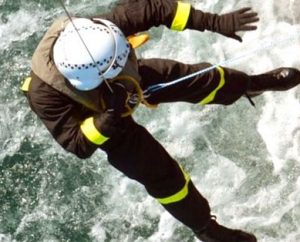
Helicopter crew found safe on New Zealand island after crash
Three crewmen aboard a helicopter that crashed off the New Zealand coast while on a rescue mission were found alive on a remote island Tuesday after they were missing overnight. Rescue Coordination Centre spokesman Mark Dittmer said the men were found shortly before noon in their survival suits walking along a beach on uninhabited Auckland Island, some 500 kilometers (311 miles) southwest of the town of Invercargill where they’d left from 16 hours earlier.,,, The helicopter left Monday evening to evacuate a person aboard a fishing boat who needed urgent medical attention,,, >click to read<10:19
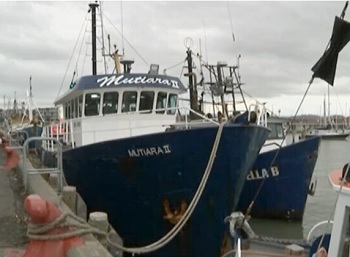
Commercial fishing company becomes first to be banned in New Zealand
In what’s believed to be a first in New Zealand, a commercial company has been banned from fishing. The company run by the Hawke’s Bay D’Esposito family has copped a three-year ban and an $80,000 fine after failing to report more than 200 kilograms of crayfish. The Nimrod 1 is a Napier crayfishing vessel now implicated in fraud. The crew didn’t know, but the Ministry for Primary Industries (MPI) began watching them, and the crayfish they were catching for the Hawkes Bay Seafood’s Group, back in September 2014. >click to read<10:44
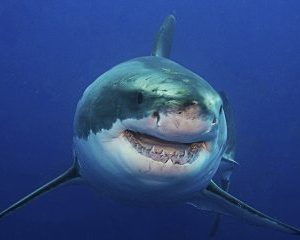
Crew told stories and joked to keep spirits alive, in shark infested ocean after fishing boat capsizes
Three people told stories and joked to keep their spirits alive whilst trapped in freezing, shark-infested waters after their fishing vessel capsized off the coast of the Chatham Islands. The commercial fishing boat, Mary Ellen II, had only been at sea for two hours and had just started pulling in blue cod when the 10 metre long vessel was hit by a rogue wave from behind and flipped upside down on Friday morning, the NZ Herald reports. There was about 300kg of blue cod on board. Skipper Jason Braid, 47, told NZ Herald the ordeal was “pretty bloody scary”. >click to read<18:32
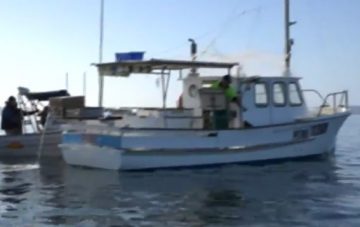
Confrontation: Far North locals blaming commercial fishing for dwindling fish stock
A group of Far North locals who blame commercial fishermen for their dwindling fish stock are taking matters into their own hands. Karikari Peninsula residents are petitioning the Government for a change in the rules but are also having confrontations on the water. Karikari Peninsula community leader Thomson Lawrence said, “We’ve lived here all our lives and we know the stock numbers have dropped off. Video, >click to read<07:56
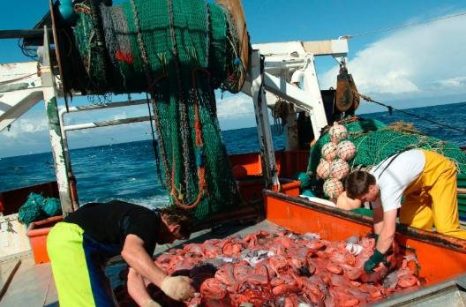
Bottom trawling for orange roughy has scientists worried
Three of the nine fisheries within New Zealand waters were recently deemed sustainable once again. But it is bottom-trawling for orange roughy on the high seas – the area out beyond the 12 nautical mile limit of New Zealand and Australia’s exclusive economic zone – that has scientists and conservationists worried.,, Experts call them “vulnerable marine eco-systems” (VMEs) but some in the fishing industry even object to the term as “unscientific and akin to labelling fishermen as murderers”. These tensions led to protracted wrangling about how best to protect the South Pacific’s orange roughy and that has now culminated in threats of legal action from New Zealand’s powerful fishing industry interests. >click to read<13:45
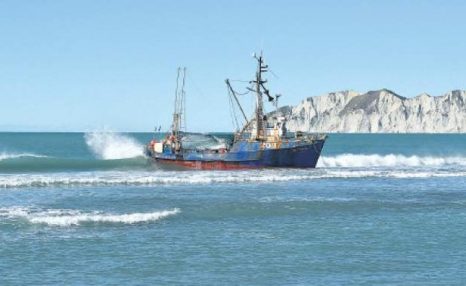
Trawler Jay Patricia aground near Waiapaoa
A fishing vessel went aground on a sandbar on the city side of the Waipaoa River mouth during the night. A refloating attempt for the steel-hulled long-liner Jay Patricia was hoped to be made around high tide in the middle of the day, or otherwise on high tide tomorrow. Eastland Port general manager Andrew Gaddum said the trawler remained upright on the sandbar. “The grounding happened at about 2am today as the vessel was returning to Gisborne from a fishing trip.” >click to read<17:20
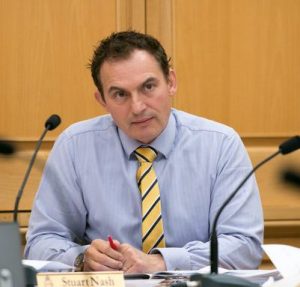
Govt considering ditching fishing boat camera plans
The government is considering scrapping the rollout of cameras on commercial fishing vessels altogether. Fisheries Minister Stuart Nash said many in the fishing industry were unhappy with the camera proposal and all options were on the table – including dumping it entirely. One of Mr Nash’s first moves when he became the Fisheries Minister was to put the brakes on the rollout of electronic monitoring of the commercial fishing fleet.,, “We could continue the project as it is, we could delay it – at the extreme we could dump it.” >click to read<18:44
Labour to pause rollout of fish monitoring system
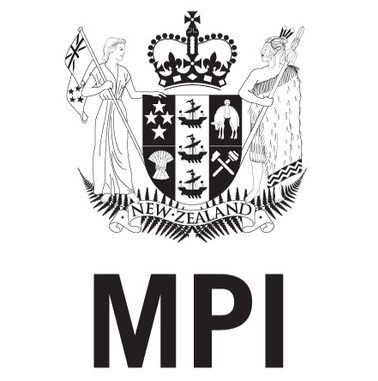 The fishing industry has got the pause it wanted to a system of electronic monitoring and reporting of fishing catches. Fisheries Minister Stuart Nash has instructed Ministry for Primary Industries officials to look at options for slowing down the implementation of IEMRS (Integrated Electronic Monitoring and Reporting System) on commercial fishing vessels.,, All commercial fishers were going to be required to use Geospatial Position Reporting and e-logbooks by April 1, 2018, and cameras by October 1, 2018. click here to read the story 09:01
The fishing industry has got the pause it wanted to a system of electronic monitoring and reporting of fishing catches. Fisheries Minister Stuart Nash has instructed Ministry for Primary Industries officials to look at options for slowing down the implementation of IEMRS (Integrated Electronic Monitoring and Reporting System) on commercial fishing vessels.,, All commercial fishers were going to be required to use Geospatial Position Reporting and e-logbooks by April 1, 2018, and cameras by October 1, 2018. click here to read the story 09:01
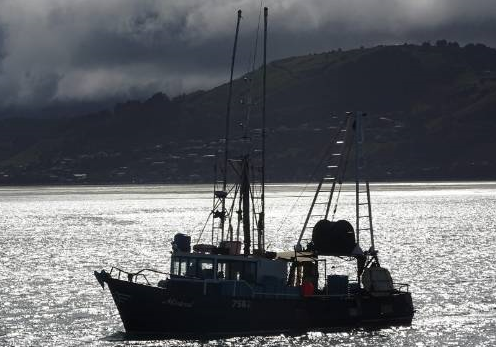
Carving up the Bureaucracy – MPI dismantling received positively by Nelson fishing industry
The announcement of a dedicated fisheries portfolio by the new Labour-led government has local fishing representatives hooked. Prime Minister Jacinda Ardern announced this week the primary industries mega-ministry would be split into three parts covering forestry, fisheries and agriculture to allow greater focus on each sector. While the finer points of the new structure were yet to be discussed, the decision has already been well-received by both commercial and recreational fishing representatives. click here to read the story 16:56
Leaked fishing camera report ‘sound’, top advisor said
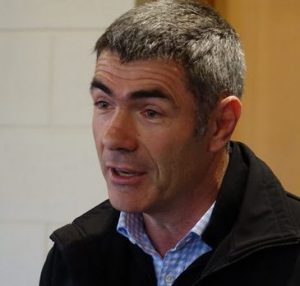 The report, carried out by the Ministry for Primary Industries (MPI), was leaked to Greenpeace in June. It raised doubts about whether camera technology on fishing boats would be much use in court as evidence of illegal fishing. MPI later called the report “misleading” and poor quality, and Mr Guy said scientists had binned it. But in emails released to the Green Party under the Official Information Act, a top science advisor described the report as “robust and sound”. The camera technology will be rolled out on all boats from October 2018. The minister’s spokesperson said they could be used to spot some fishing offences, and would have a strong deterrent effect. click here to read the story 11:09
The report, carried out by the Ministry for Primary Industries (MPI), was leaked to Greenpeace in June. It raised doubts about whether camera technology on fishing boats would be much use in court as evidence of illegal fishing. MPI later called the report “misleading” and poor quality, and Mr Guy said scientists had binned it. But in emails released to the Green Party under the Official Information Act, a top science advisor described the report as “robust and sound”. The camera technology will be rolled out on all boats from October 2018. The minister’s spokesperson said they could be used to spot some fishing offences, and would have a strong deterrent effect. click here to read the story 11:09
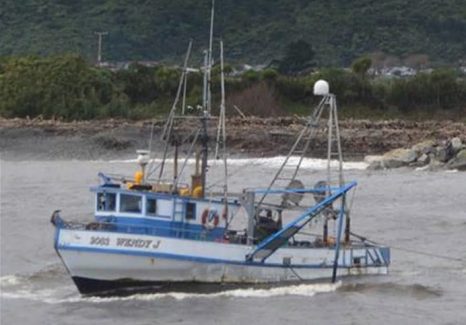
UPDATED: One Fisherman Survives, Two missing – Greymouth boat Wendy J sank on southern West Coast
The commercial fishing boat which sank on the rugged coast of South Westland ran aground on the rocky shore after becoming entangled in a rope. Two men are missing from the Greymouth-based Wendy J after it got into trouble near Jackson Bay on Thursday night. The alarm was raised yesterday morning after a light aircraft spotted wreckage and a life raft on the shore. A survivor, Mark Thomas, was found yesterday near Teer Creek, about 10km southwest around the bouldery coast from Smoothwater Bay, the area where it is the boat sank. Smoothwater Bay is a small cove whose entrance is marked by rocky outcrops. click here to read the story 23:35
West Coast search resumes for two fishermen missing after Wendy J sank – “An improvement in weather conditions has allowed a helicopter to start an aerial search and ground search teams are carrying out a shoreline search,” police said this afternoon. click here to read the story 11:26
Catch Shares – New Zealand’s fisheries quota management system: on an undeserved pedestal
 In popular imagination, New Zealand’s fisheries management system is a globally recognised story of sustainability, reflecting a “clean and green” environmental ethos. Indeed, New Zealand’s fisheries have been ranked among the best managed in the world – an accolade based on the early and wholehearted adoption of a Quota Management System (QMS). This perception is echoed in a recently published article, but we take issue with the methodology and its conclusions. Claims that New Zealand’s QMS is an unmitigated success simply do not match the facts. click here to read the story 18:32
In popular imagination, New Zealand’s fisheries management system is a globally recognised story of sustainability, reflecting a “clean and green” environmental ethos. Indeed, New Zealand’s fisheries have been ranked among the best managed in the world – an accolade based on the early and wholehearted adoption of a Quota Management System (QMS). This perception is echoed in a recently published article, but we take issue with the methodology and its conclusions. Claims that New Zealand’s QMS is an unmitigated success simply do not match the facts. click here to read the story 18:32
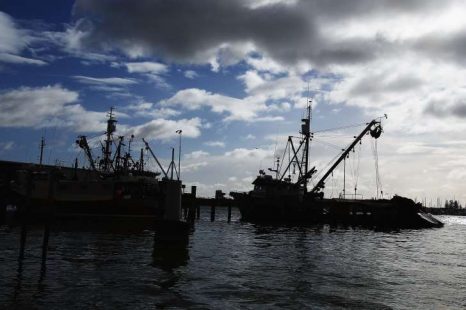
Cameras on boats ‘an invasion of privacy’
A group of fishermen could be heading to court to fight a plan to use cameras and GPS trackers to monitor commercial trawlers. Consultation by the Ministry for Primary Industries on the first phase of the rollout of the new technology closed yesterday. Some fishermen claim the cost and time involved could put many people out of business. New regulations, which start to apply next year, involve installing cameras and GPS technology on 1200 fishing boats in Southland. A group of 70 fishermen, mainly from Southland, have each pledged $1000 towards a legal fight to stop the move, with a decision due this week on whether to head to court. Bluff fisherman Chris Black said they were being treated worse than criminals. click here to read the story 15:44
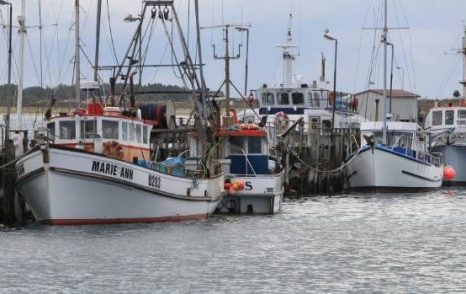
New Zealand: MPI agree to meet Southland fishermen over electronic monitoring regulations
Ministry for Primary Industries staff have agreed to front up to Southland fishermen who have questions about new monitoring and reporting regulations. From October 6, new measures will be rolled in to ensure that all commercial fishing boats are fitted with both GPS equipment and cameras, to improve monitoring of catch levels and to help prevent any illegal activity. More than 100 fishermen, from throughout Southland, met at the Ascot Park Hotel in Invercargill last week to discuss the implications of the ministry’s new Integrated Electronic Monitoring and Reporting System (IEMRS). Many in the commercial fishing industry were frustrated at the fact the new rules had been decided on without proper consultation or thought to their consequences. click here to read the story 09:43

Letter: Government fishing vessel monitoring plans are demanding rubbish
I see Nathan Guy is claiming the new electronic system for monitoring fishing vessels is the biggest change since the introduction of the commercial fishing quota system. I believe he has no knowledge of the history of his portfolio. Instead of writing paper reports we will do them electronically. Whoopee. Someone needs to tell him that this is being done in some form or another on most boats, along with AIS tracking on most company boats, although MPI probably doesn’t have access to a lot of it. It is only the smaller boats, that have the least impact, that don’t – as most can’t afford it. We already work under the most onerous system in New Zealand and probably the world. The extra detail being included is ridiculous and in some cases unworkable on a small boat. click here to read the letter 15:39






